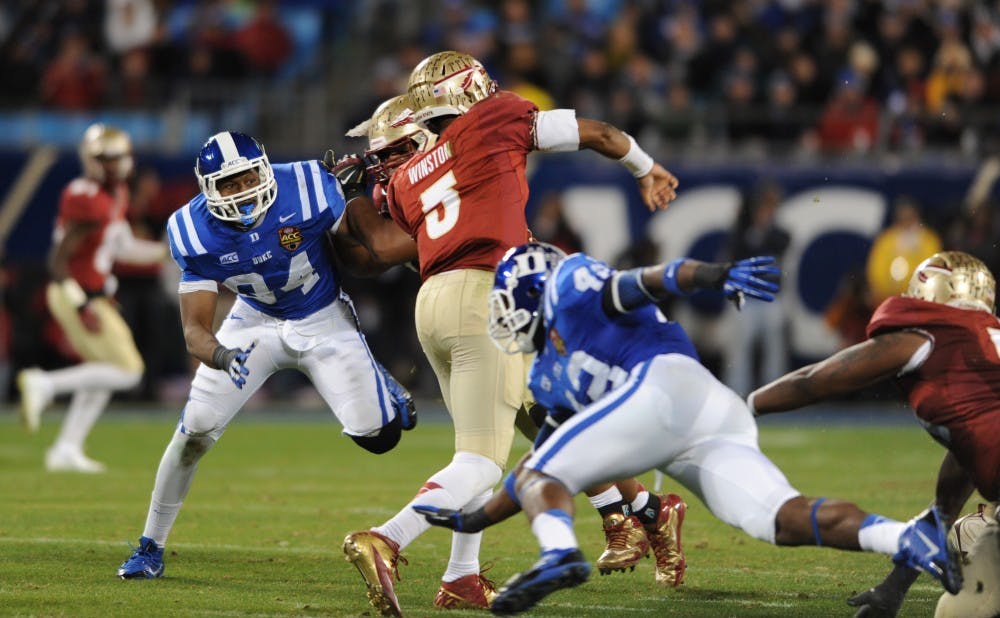Autonomy is coming to the NCAA, and the Atlantic Coast Conference took a step toward defining what it will look like Monday.
The ACC announced three proposals as a part of the recently adopted autonomy process. The proposals were approved by the conference’s Council of Presidents and fall in line with what many believed would be the initial focus of the league. The proposals revolve around the true cost of attendance for student athletes, loss-of-value insurance and guaranteed scholarship renewal.
“The ACC’s continued discussions related to enhancing the student-athletes’ experience has resulted in our submission of three legislative proposals,” Donna E. Shalala, Chair of the ACC Council of Presidents and President of the University of Miami, said in a press release.
The gap between what students receive in grant-and-aid and the full cost of attendance is the main focus of the initial proposal, and much has been made in the past year of athletes not having enough money to fulfill their basic needs.
The monetary value of the gap is based on one’s athletic scholarship. Student-athletes on full grant-and-aid at Duke will be entitled to $3,024, the average gap between the cost of attendance and scholarship money. For students on a half-scholarship, the amount is also cut in half, entitling them to $1,512.
“There certainly appears to be a consensus for providing full cost of attendance for student-athletes on athletic scholarships,” Duke vice president and director of athletics Kevin White said. “My instinct is that that one will be ratified.... I do know the ACC is totally on board with full cost of attendance.”
This proposal is one that all five of the Power Five conferences—the ACC, SEC, Big Ten, Big 12 and Pac-12—have also been in agreement on, White said. It will go to an official vote in January at the first business meeting. If passed, it would go into effect by Aug. 1, 2015, although it may be executed earlier than this in order to cover the full 2015-16 academic year.
The ACC also agreed upon loss-of-value insurance. This would allow a student-athlete to borrow against his or her future earnings potential to obtain loss-of-value insurance.
The insurance falls in line with injury insurance and has been taken out by notable names like Jameis Winston and Teddy Bridgewater in the past. The policies are centered around the idea that if players’ draft stock falls due to injury or illness, they will receive a set amount of money, tax-free. Bridgewater’s was valued at $5 million and Winston’s has been slated at $8-10 million. The proposal would be effective immediately.
The final proposal focuses on fairness to athletes on scholarship. The renewal proposal states that a student-athlete’s athletic scholarship may not be revoked for on-field performance or injury. The rule change would go into effect Aug. 1, 2015.
“These three proposals create a pathway to additional benefits for student-athletes, which continues to be the top priority,” ACC Commissioner John Swofford said. “Our Council of Presidents and membership will continue to explore ways to enhance our student-athletes’ experience within the collegiate model.”
The conference will work with the NCAA to finalize the legislation, as both sides prepare for the coming January business meeting, in which the five conferences will gather to vote on the proposals and continue to vet any unclear legislation. Among those in attendance will be faculty representatives, senior women administrators, athletic directors and, possibly, university presidents, according to White. The date for the meeting had not been set as of Monday.
Get The Chronicle straight to your inbox
Signup for our weekly newsletter. Cancel at any time.

